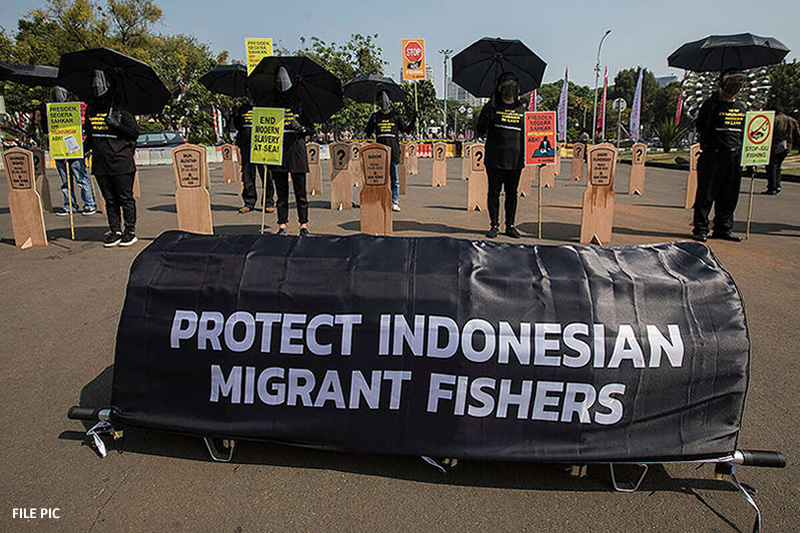
Indonesia fails to provide proper policies to protect workers
 Indonesia – Reports on labor rights violations on Indonesian sailors have discovered that Indonesia‘s government policies have neglected to give fishing vessel migrant laborer complete security.
Indonesia – Reports on labor rights violations on Indonesian sailors have discovered that Indonesia‘s government policies have neglected to give fishing vessel migrant laborer complete security.
As per the report, the migrant workers are poorly trained after recruitment. They are forced to sign documents or contracts, which are later used to exploit them. While boarding the fishing vessels, many migrant fishing workers face terrible working conditions, mental abuse, substandard food and are forced to overwork.
Maritime observers press the Indonesian administration to bolster the guidelines for recruitment, repatriation, employment, and legal redress for sailors on foreign and domestic vessels.
Public coordinators for the NGO Destructive Fishing Watch (DFW) Indonesia Mohammad Abdi Suhufan told Mongabay News that the deckhand hiring process requires complete transparency and fairness. Moreover, the lax investigations at sea and ports by authorities have failed to handle the matter.
Related Posts
- Why Were Peaceful Protests Made Bloody For Papuans Of Indonesia?
- Indonesian Army Discontinues Women Virginity Test
- Aware of discrimination but Koreans continue to levy inequity against migrants
Many of these vessels utilize Indonesian deckhands and are involved in illegal, unregulated and unreported (IUU) fishing. Those that work on these boats from neighboring nations are mostly found fishing in Indonesian waters. They are often found working on foreign distant-water fishing boats that are involved in catching guarded endangered species.
The Indonesian fisheries department, as of late, announced that centers to a great extent around further developing homegrown fishing businesses.
However, Abdi stated that the ministerial guideline lost the chance to augment protection for deckhand workers performing their duty on Indonesian ships. He added that the declaration might have included having a joint examination on the boats.
“Very little is changed by the new guideline as it just somewhat further develops the work security angle in fishing activities,” Abdi said. Mainly China is the world’s largest fishing power, accounting for almost as much movement in nearby waters. Many migrant laborers come from Indonesia; the nation is popularly considered the top labor supplier for the international distant-water fishing industry.







